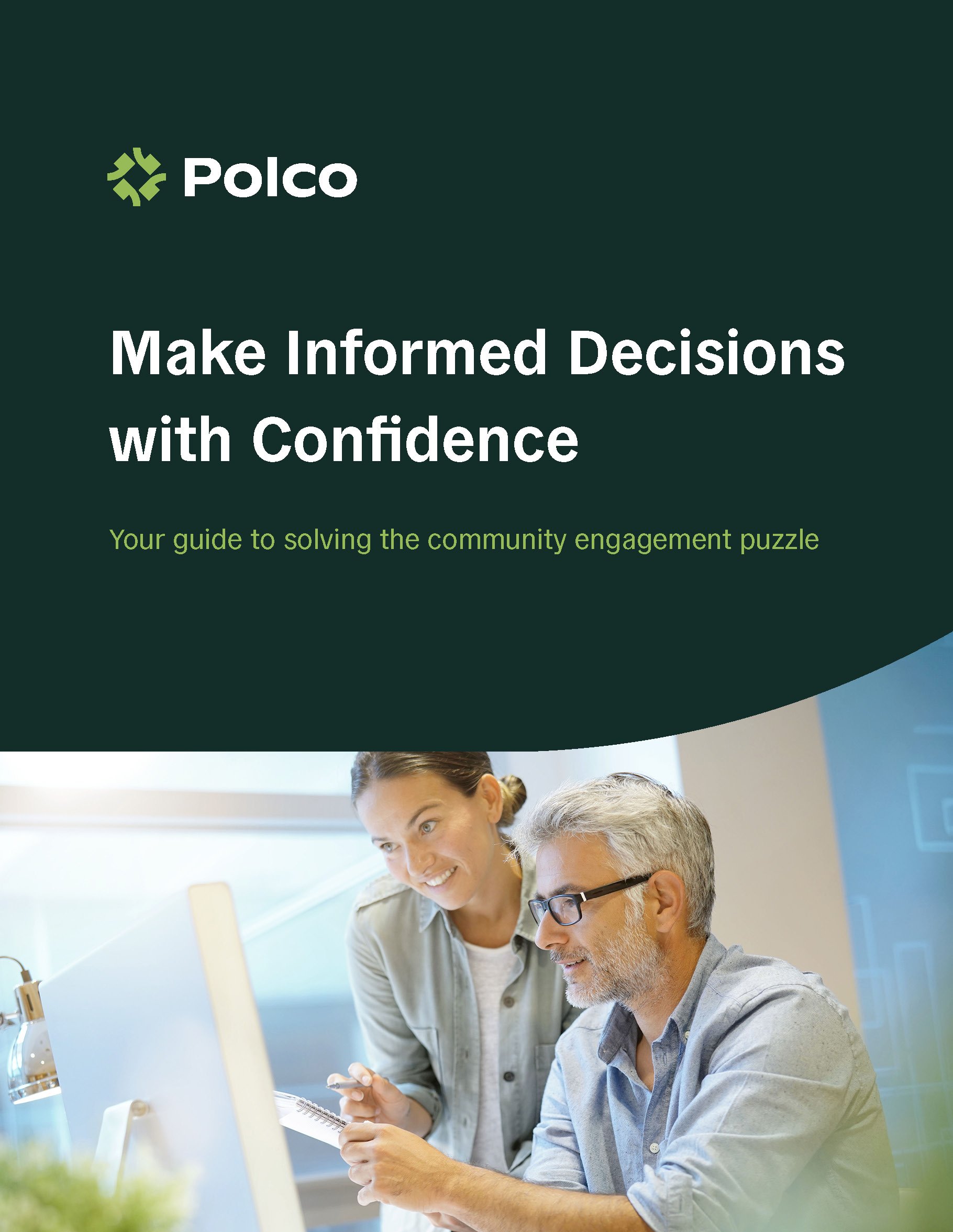Share this
Subscribe to Our Newsletter

Featured Report
Download your copy of "Make Informed Decisions with Confidence: Solving The Community Engagement Puzzle" today!
by NRC on October 10, 2016

Horrible derailments are not reserved for commuter trains. Americans’ trust of the two major candidates for president has crashed too. The good news is that citizens do not hold the same beliefs about local government as they do about national candidates or conditions. National Research Center, Inc. (NRC) has tested how much or how little tens of thousands of residents across America trust their local government. We’ve asked them to rate how well their jurisdiction acts in the best interest of their community, welcomes resident involvement and treats all residents fairly. Residents have also reported the extent to which they receive valuable services for taxes paid, favor the overall direction of the community and their level of confidence in the honesty of local government.
Analyzing survey responses of 80,000 residents from over 100 communities, we find that about half of all Americans give excellent or good ratings to each public trust survey question. While that crushes the reported percent of Americans who trust either of the main presidential candidates, public trust resides at the bottom of ratings for other characteristics of livability such as the community as a place to live, raise children, visit or retire. For these community qualities at least 2 in 3 Americans give excellent or good ratings.
With trust in local government scoring just “OK” and, at the same time, representing the backbone of a willing democracy, we wanted to explore the linkages to public trust in communities across the U.S. Who trusts local government most and in what kinds of communities is confidence in local government highest?
Accessing the vast opinion database of responses to The National Citizen SurveyTM , we find this:
The longer a person lives in a community, the less trust he or she has in local government.
Because those living longer in one place often are older and have more income, one may suspect that the decline of trust with longer residency may be explained by broadly rising dissatisfaction as people age, and that higher expectations for tax spending among those with higher incomes also would diminish appreciation of local government. However, the data prove those stereotypes of the aged and wealthy to be wrong.
In fact, older residents and residents with higher incomes tend to report trusting their local governments more than do younger residents or residents with lower income.
These facts may seem contrary until comparing public trust levels of people with similar age and income levels. Residents who have lived in a community for over 20 years (for example) report much less trust in the local government than do those residents of the same age and income level who have lived in the community between 6 and 10 years. And this is for people of about the same age and income.
Our research also shows that residents who live in a community longer, compared to newer residents, more often engage in community-centered activities, expose themselves more to news about local goings-on and give higher ratings to local government services. And yet, they trust local government less!
What’s going on here?
Perhaps the longer one lives in a community, the more likely she will be affected by some community struggle – a zoning change that could increase the density in her neighborhood, a proposed round-about on her way to work, a prairie dog colony relocation. Even if conflicts are handled fairly by government staff and even if the resident finds herself always on the winning side (if there are sides), much of the local chatter around a community problem includes the arguments of both disgruntled residents and those pleased with the solutions. Conflict, though ubiquitous and necessary in democratic societies, can be corrosive, especially if local governments attend more to solving the problem than creating a field of dispute that honors winners and losers. Earlier research conducted by NRC has shown that public trust declines for those who more often attend community meetings, because community meetings typically attract residents when problems arise.
To avoid the local government syndrome “to know it is to hate it,” staff should engage longtime residents in debriefing the factors that enhance or diminish their public trust and adapt those concerns to improve confidence. The public trust puzzle is worth solving because revenue-raising votes, volunteerism and resident self-sacrifice for the common good may depend on it.
Related Articles
National Research Center, Inc. (NRC) is a leading full-service survey research and evaluation firm focusing on the information requirements of the public sector, including local governments, health care providers, foundations and non-profit organizations. Visit our home on the Web at www.n-r-c.com. Check out our media page for more news, tips and human-interest stories from NRC.

Download your copy of "Make Informed Decisions with Confidence: Solving The Community Engagement Puzzle" today!
These Related Stories


